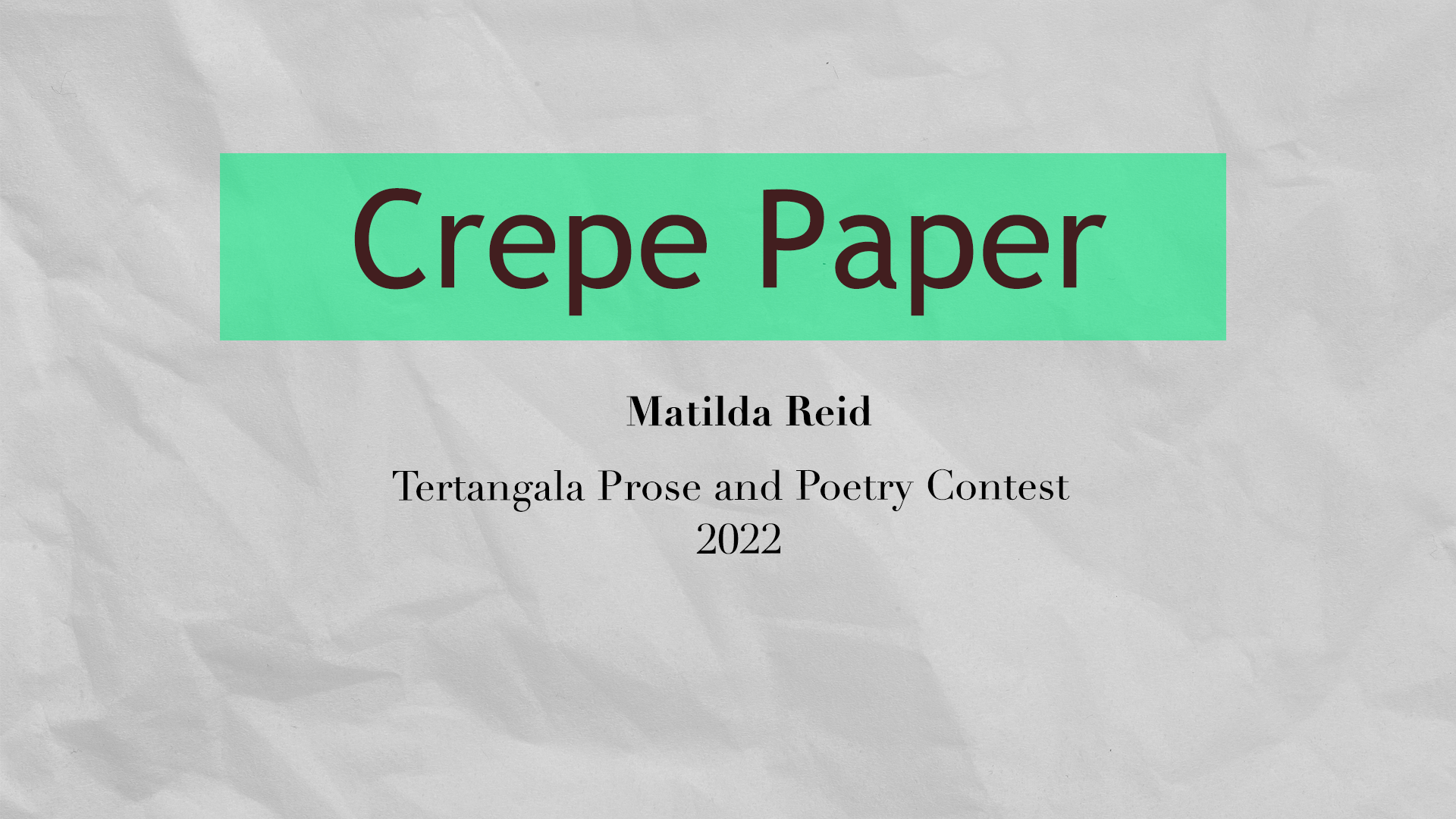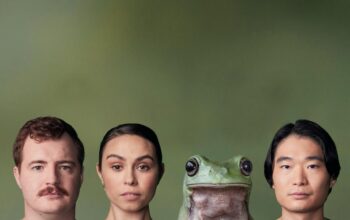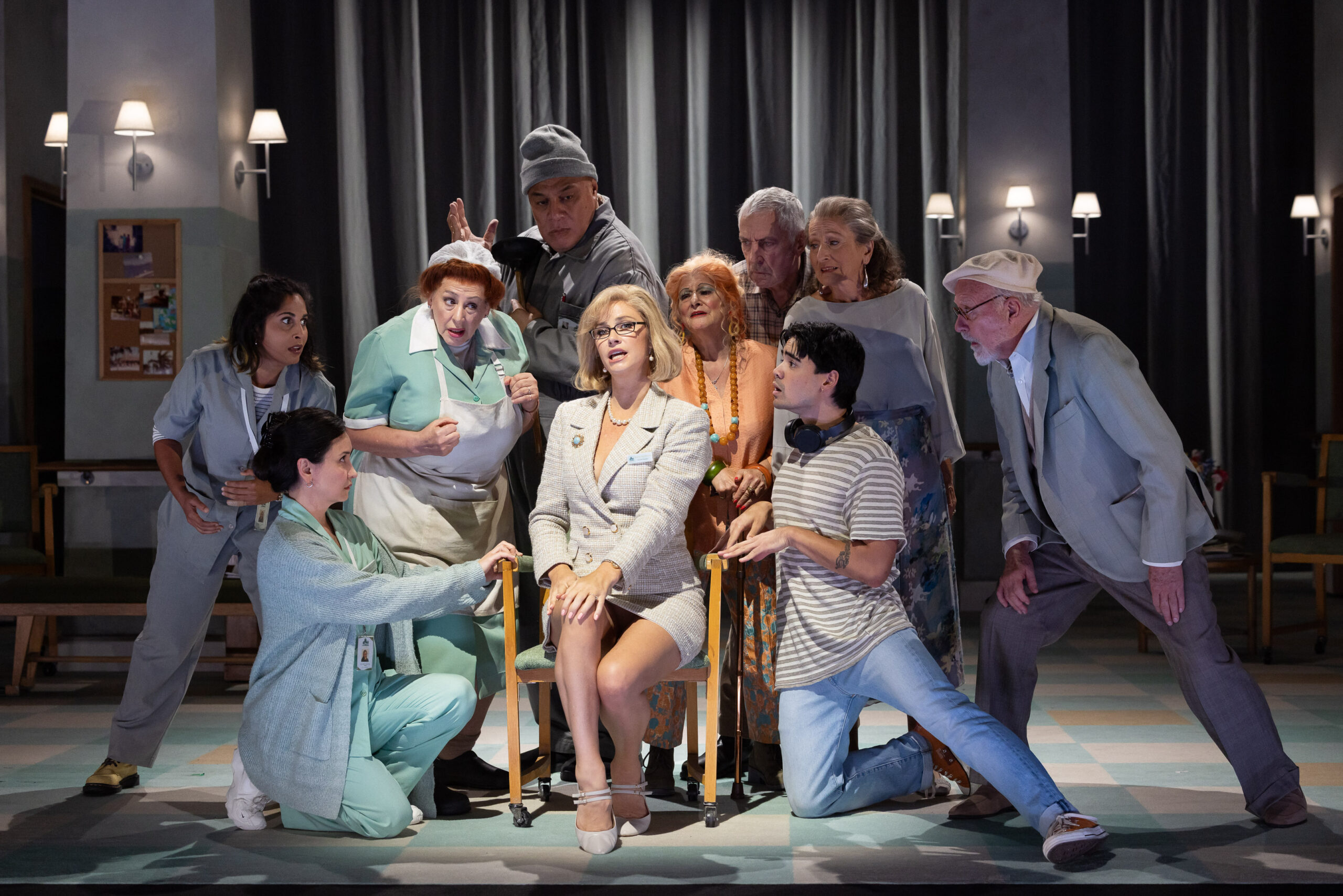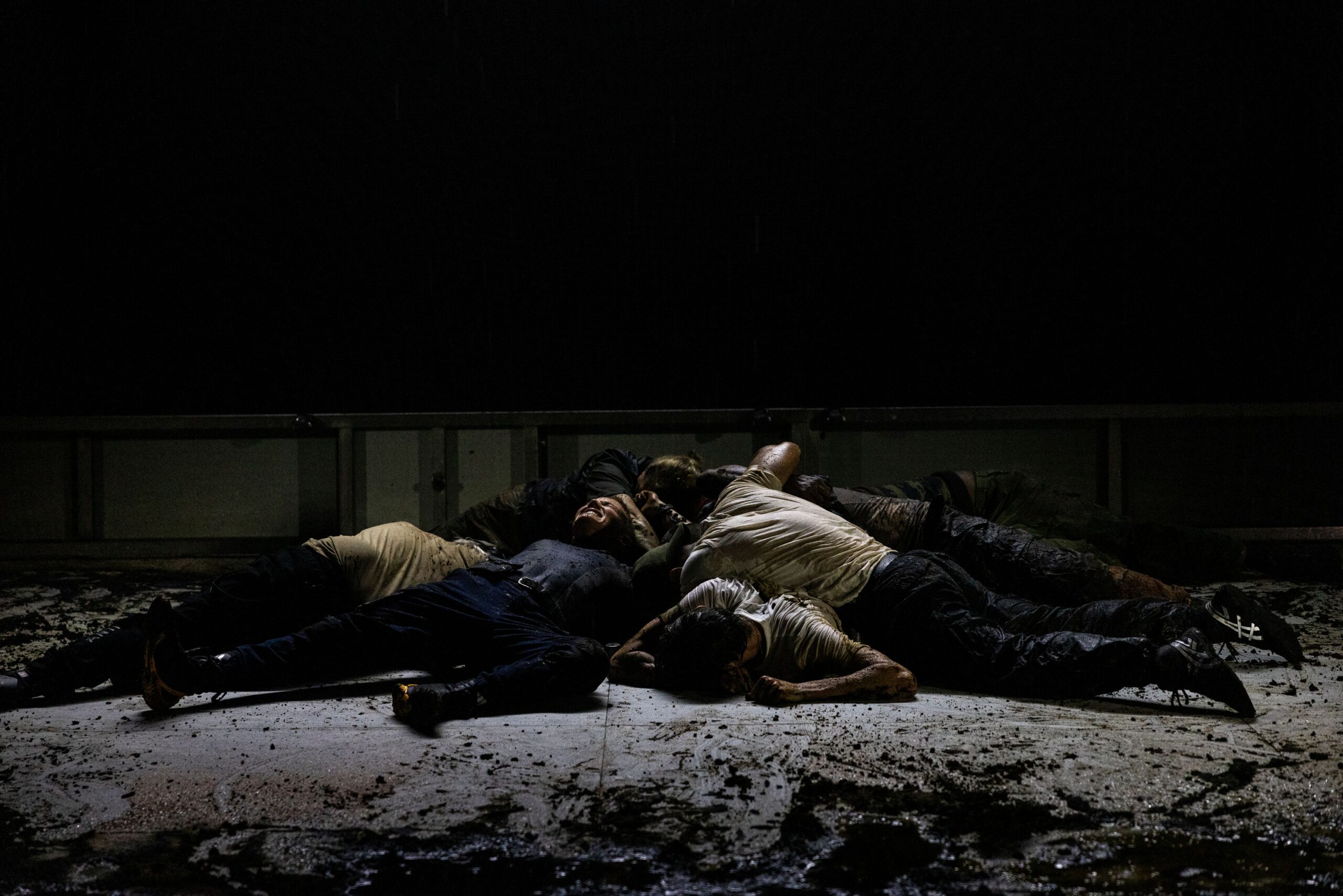‘I can see all of Sydney from up here. It’s fucking beautiful, Mum!’ were the last words my son
would speak to me. Or shout, rather, from the top of the Norfolk Pine. Then would come the
creek and snap of its tallest branches, the thumping of my heart, and the thud of his body, metres
from my feet. He’d make a two-storey descent over four seconds, and fracture his sternum, right
arm, and skull upon impact. That’s how the paramedics would describe the event, at least. My
perspective wasn’t exactly a match for theirs though. Maybe, it was that I forgot to wear my
glasses that night, or maybe it was the wine we’d shared at sunset. But things were a little more
drawn out from where I stood. First, they failed to mention the way his eyes and mouth stretched
wide, inhaling the shock of his own weight falling freely. And the way his hands fought with the
air above, as if it could suspend him there after the branch came loose beneath him. They failed
to mention the bouncing of his body, down, down, between the tree’s wooden arms. They failed
to mention the pine needles that caught his shoe laces, tugging them from his feet. And how his
toes were left cold, his converse hanging halfway up the tree trunk, plaited to his last moments of
consciousness. They also failed to mention the series of snaps and groans that his body emitted
as it landed finally before us. It would be distasteful to include that though.
Movement would erupt, infants would cry and onlookers would stare. But between my
motionless child and I, an invisible umbilical cord would pull tight, yanking me to my knees on
the grass beside him, like a fish yanked in on a line.
Later, onlookers in witness statements would wonder how we’d heard his voice so far
beneath him before the fall, but I was used to his bellow. Later, the paramedics would wonder
how he’d climbed to the tree’s top in the first place, but I was used to his climbing. He’d been
climbing since he began walking, really: fences and goalposts, classrooms and cabinets, anything
taller than he.
I remember one morning when he was just a wee one, nine months old I’d guess, I had
him all set up in his playpen. He was small, secure, not yet tall enough to reach the railings
around the top. Or so I thought. Half an hour into my yoga practice I realised the shake of his
rattle had turned to silence and that his playpen had emptied. A sticky panic overcame me then,
one that nauseates you deep in the gut, in a place only parents missing a child could know. He
was, of course, found out by the letterbox, babbling in the postman’s arms as if they were old
friends. It remains a mystery still today how he negotiated the baby gates or the locked front
door.
The only milestone he ever truly took slow was shoelaces. I’d sit him down before school
each morning, guiding his hands through the motions, ‘Bunny ears, bunny ears, jumped through
the hole…’. But He’d be off before you could ever finish the rhyme. And then he’d arrive home
with these black ribbons trailing in the dirt behind him, teachers note in hand reprimanding his
inability to tie them. He never cared for such expectations though. Not until he was fifteen, when
his first girlfriend tripped down the canteen stairs, all tangled up at his ankles. I don’t think his
laces went untied for another day after that. Not until they broke up.
Now, just as I was those decades ago, I’m nauseous missing my son. Nurses tell me I
must eat too, ask if I’m comfortable in the armchair, but there’s nothing comfortable about the
ICU. So instead, I sit hungry by his bedside, kept company by the dozen ringing monitors filling
the ward. Bouquets of tulips, roses, hydrangeas and whatever else is in season spread across the
far edges of the room. They line the windowsill framing the city beyond us, the bedside table
Sam cannot use, and the small shelf in the corner beneath the TV he cannot watch. Their thin
petals have begun to decorate the bleach clean vinyl floor, while the remaining bulbs droop
sideways, drunk on stale vase water. Fresh flowers arrive to take their place as more visitors
arrive. Colleagues bring cards. Room-mates bring care packages, ‘For when he wakes up,’ they
inform me, hopefully. Old school friends bring heavy blankets, hand-knit by their mothers who
send home-cooked meals. It’s only once these niceties are over that they realise there’s not much
to visiting a comatose friend. Is it awkward if we talk aloud to him, sit in silence awaiting his
response? Is it rude to point out the mascara staining her cheeks? Is it too soon to leave? I watch
them wonder. Their eyes dart between the bruising, the bloating, the bandages and the beeping
before I eventually usher them out.
‘It’s time to go, sorry darlings. The nurses are on their way.’
They retreat to the corridor with grateful murmurs of relief hiding what I sense they wish they
could ask: That boy in the bed, are you sure that’s still our Sam?
Nurses appear in the doorway; gloves and needles, fresh sheets and pureed food at the
ready. When they leave, they ask me to wipe his lips with a damp washer if they look to be too
dry. I crouch over him every few hours, washer in hand, tending to the torn and stitched cupids
bow which once perfectly resembled mine. I try to ignore the way his face is warped and
wrapped in oxygen masks, tubes pumping this way and that. I try harder to look beyond the way
the skin is stretched taut over his skull, like a hide over a bongo drum, fighting to resist the
swelling of his brain beneath it. I try harder still to search for my Sam somewhere in there, for
the boy who’d begged to climb each and every tree we’d ever passed, lying silent before me
now.
Because when the elevator doors close and his friends wave goodbye, this is what I want
them to remember: how the part of that evening which lingers the most isn’t his falling to the
ground, but his climb to the top; how his face, the size of a pin prick, shone in the distant height
of the tree, like an angel on Christmas day. I want them not to remember the white skin encrusted
at his lips, but of the way that orange slice smile just about filled half his face. I want them not to
remember the crepe paper wrinkles of his dormant eyelids now, but of his eyes, like blue bells
beneath them, and all they saw that night. I want not to remember the blaring of screaming
strangers and sirens, but of the last words my son shouted down to me as he became one with the
horizon that night, ‘I can see all of Sydney from up here. It’s fucking beautiful, Mum.’




